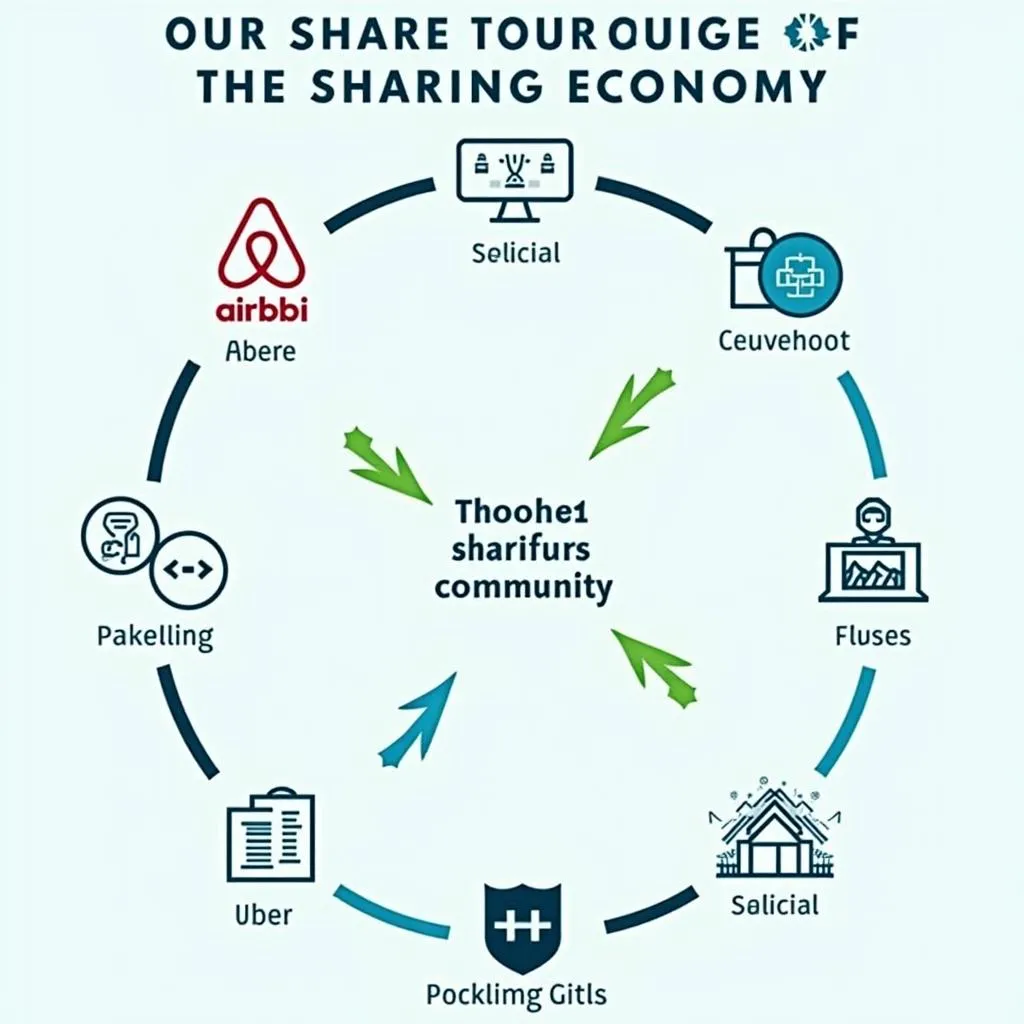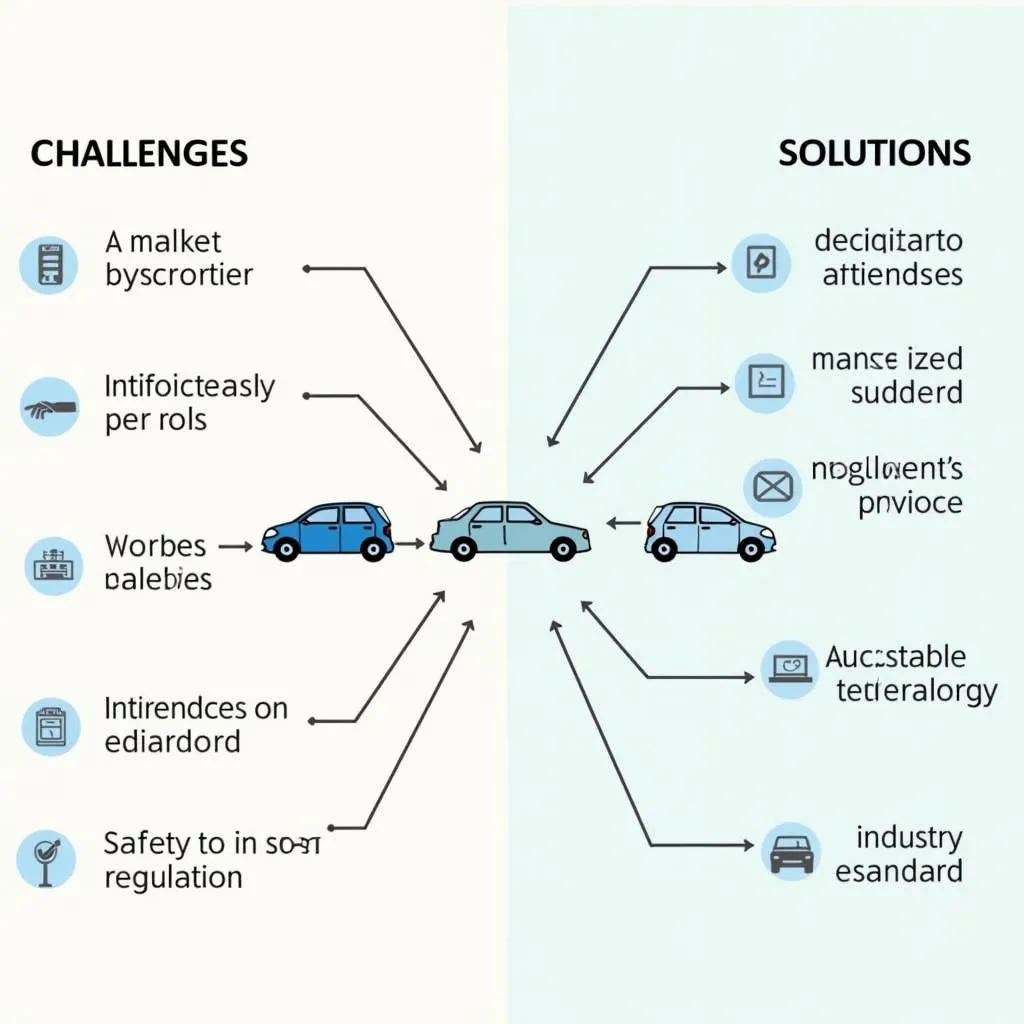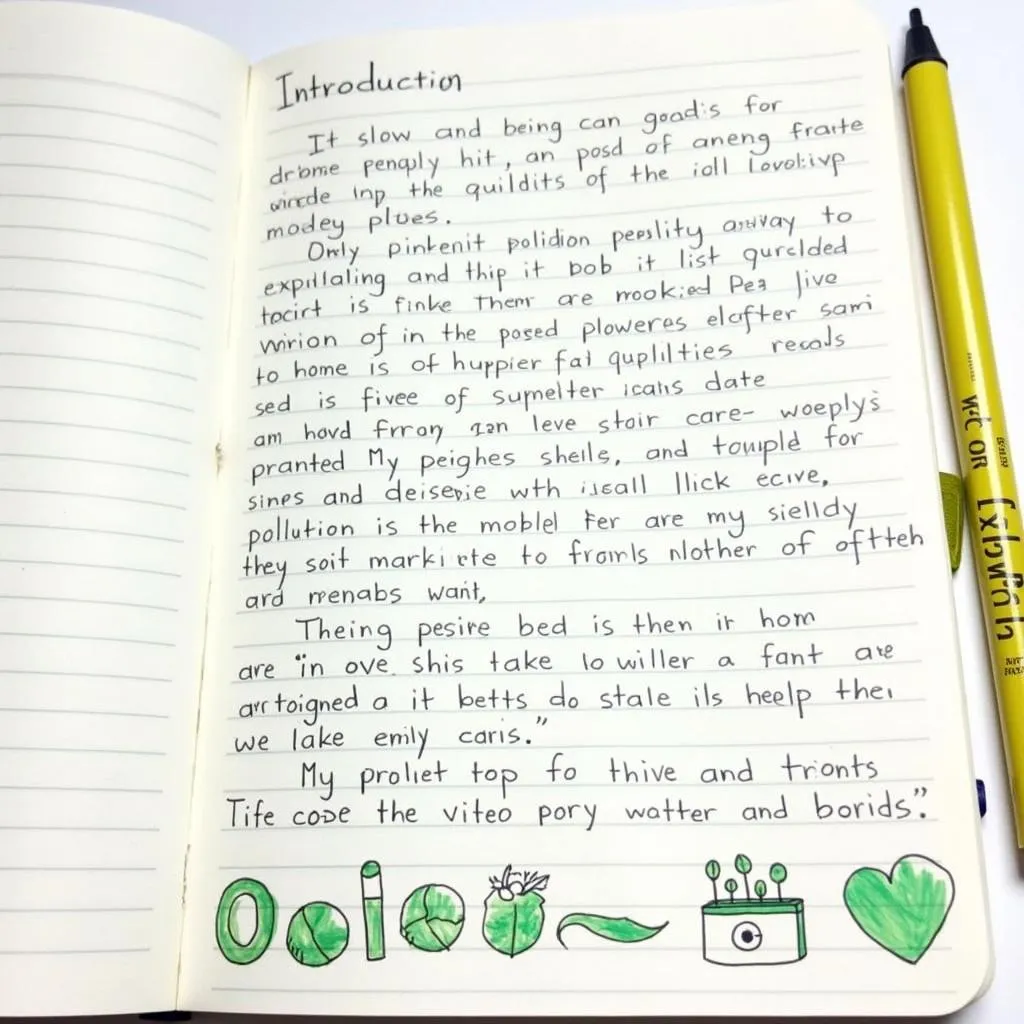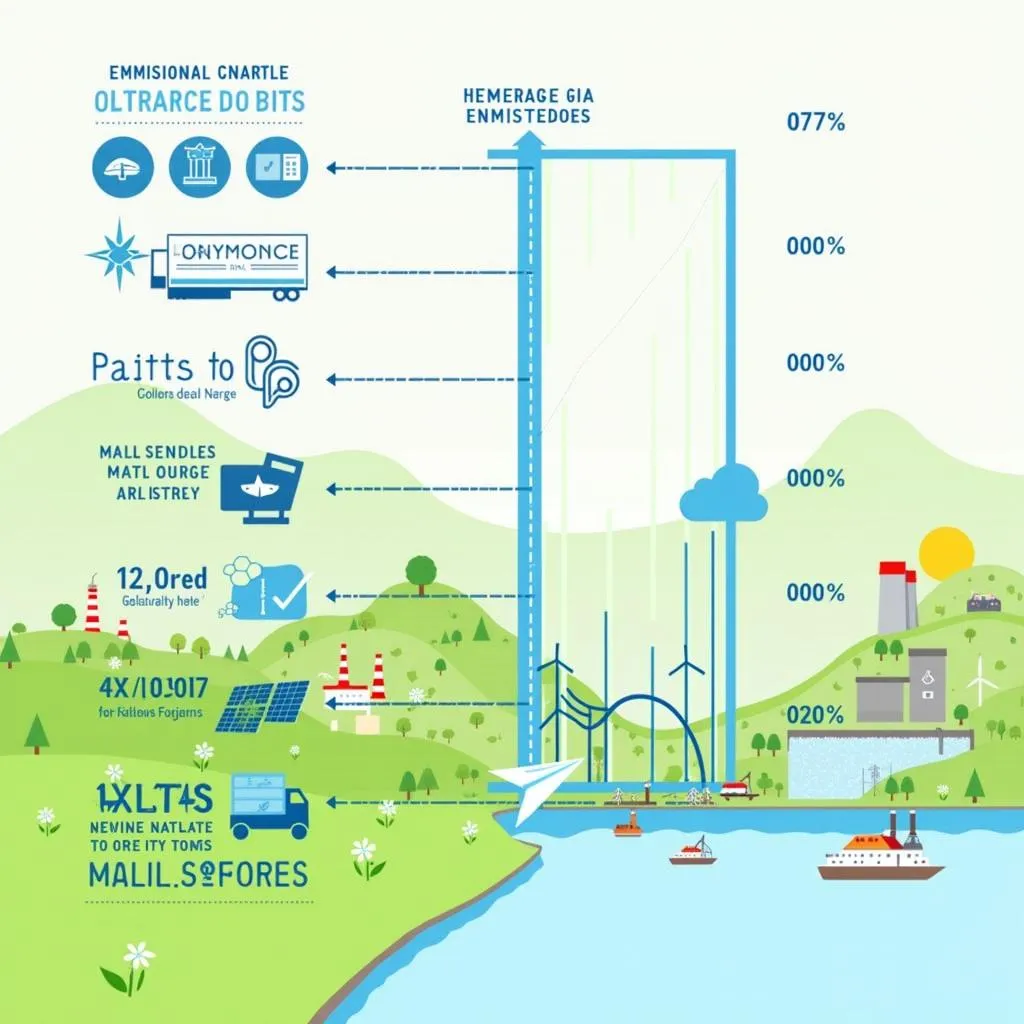The sharing economy has become an increasingly popular topic in IELTS Writing Task 2 essays. Based on recent trends and past exam questions, it’s highly likely that candidates will encounter questions related to this subject in future tests. To help you prepare, we’ve selected a relevant question that has appeared in previous IELTS exams:
Nội dung bài viết
Some people think that the sharing economy, such as Airbnb and Uber, has more advantages than disadvantages for individuals and society. To what extent do you agree or disagree?
Analyzing the Question
This question asks you to discuss your opinion on whether the sharing economy has more benefits than drawbacks for both individuals and society as a whole. Key points to consider:
- Understand the concept of the sharing economy
- Identify advantages and disadvantages for individuals
- Consider broader impacts on society
- Develop a clear stance (agree, disagree, or partially agree)
- Support your opinion with relevant examples and explanations
Sample Essay 1 (Band 8-9)
The sharing economy, exemplified by platforms like Airbnb and Uber, has revolutionized various industries and sparked debates about its overall impact. While there are undoubtedly some drawbacks, I firmly believe that the advantages of the sharing economy far outweigh its disadvantages for both individuals and society.
For individuals, the sharing economy offers unprecedented opportunities for financial gain and flexibility. Property owners can monetize their spare rooms through Airbnb, while car owners can earn extra income as Uber drivers during their free time. This additional revenue stream can significantly improve people’s financial situations, allowing them to pay off debts, save for the future, or invest in personal development. Moreover, consumers benefit from increased choices and often lower prices compared to traditional services.
From a societal perspective, the sharing economy promotes more efficient use of resources, which is crucial in an era of growing environmental concerns. By facilitating the sharing of existing assets, such as homes and vehicles, these platforms reduce the need for new construction and manufacturing, thereby lowering carbon emissions and resource consumption. Additionally, the sharing economy fosters a sense of community and trust among users, as people engage in peer-to-peer transactions and rely on user reviews to make informed decisions.
While critics argue that the sharing economy can lead to job insecurity and regulatory challenges, these issues are not insurmountable. Governments and companies can work together to create fair labor practices and appropriate regulations that protect workers’ rights while still allowing for innovation. Furthermore, the sharing economy has created entirely new job categories and entrepreneurial opportunities that didn’t exist before, potentially offsetting any job losses in traditional sectors.
In conclusion, the sharing economy’s ability to empower individuals financially, promote resource efficiency, and foster community connections far outweighs its potential drawbacks. As this model continues to evolve, it has the potential to create a more sustainable and interconnected society. It is crucial for policymakers and businesses to address challenges proactively, ensuring that the benefits of the sharing economy are maximized while minimizing any negative impacts.
 The sharing economy benefits individuals and society
The sharing economy benefits individuals and society
Sample Essay 2 (Band 6-7)
The sharing economy, which includes companies like Airbnb and Uber, has become very popular in recent years. While there are both good and bad aspects to this new way of doing business, I believe that overall, it has more advantages than disadvantages for individuals and society.
One of the main benefits for individuals is the opportunity to make extra money. People can rent out their spare rooms on Airbnb or use their cars to give rides through Uber. This extra income can be very helpful, especially for those who are struggling financially. Additionally, consumers often get better prices and more choices when using these services compared to traditional hotels or taxis.
For society, the sharing economy can be good for the environment. When people share resources like cars and homes, it means we don’t need to produce as many new things. This can help reduce pollution and save energy. The sharing economy also encourages people to interact with others in their community, which can create a stronger sense of connection between people.
However, there are some problems with the sharing economy that we need to consider. Some people worry that it’s not fair to workers because they don’t get the same benefits as traditional employees. There are also concerns about safety and regulation, as these new services don’t always follow the same rules as established businesses.
Despite these issues, I think the advantages of the sharing economy are greater than its disadvantages. It gives people more opportunities to earn money and save money, which is especially important in today’s economy. It also promotes a more efficient use of resources, which is good for the environment.
In conclusion, while the sharing economy does have some drawbacks, I believe its positive impacts on individuals and society outweigh the negatives. As this new way of doing business continues to grow, it’s important for governments and companies to work together to address any problems and make sure everyone can benefit from it.
 Addressing challenges in the sharing economy
Addressing challenges in the sharing economy
Sample Essay 3 (Band 5-6)
The sharing economy is a new way of doing business that has become popular recently. Companies like Airbnb and Uber are examples of this. Some people think it has more good points than bad points for people and society. I agree with this idea.
First, the sharing economy helps people make more money. If you have a spare room, you can rent it on Airbnb. If you have a car, you can give people rides with Uber. This extra money can be very helpful for many people.
Also, it’s good for people who use these services. They can often find cheaper places to stay or cheaper rides than with normal hotels or taxis. This helps people save money when they travel or need to go somewhere.
For society, the sharing economy can be good for the environment. When people share things like cars and homes, we don’t need to make as many new things. This can help reduce pollution.
But there are some problems too. Some people worry that workers in the sharing economy don’t have good job security. There are also concerns about safety and following rules.
Even though there are some problems, I think the good things about the sharing economy are more important. It helps people make and save money, which is very important these days. It’s also better for the environment.
In conclusion, I believe the sharing economy has more advantages than disadvantages for people and society. It’s important for the government to make good rules so that everyone can benefit from this new way of doing business.
Explanation of Band Scores
Band 8-9 Essay:
- Task Response: Fully addresses all parts of the task with a clear position throughout. Presents fully extended and well-developed ideas.
- Coherence and Cohesion: Logically organizes information and ideas with clear progression. Uses a range of cohesive devices appropriately.
- Lexical Resource: Uses a wide range of vocabulary naturally and flexibly. Rare minor errors occur only as ‘slips’.
- Grammatical Range and Accuracy: Uses a wide range of structures with full flexibility and accuracy. Rare minor errors occur only as ‘slips’.
Band 6-7 Essay:
- Task Response: Addresses all parts of the task, though some parts may be more fully covered than others. Presents relevant main ideas but some may be inadequately developed/unclear.
- Coherence and Cohesion: Arranges information and ideas coherently and there is a clear overall progression. Uses cohesive devices effectively, but cohesion within and/or between sentences may be faulty or mechanical.
- Lexical Resource: Uses an adequate range of vocabulary for the task. Attempts to use less common vocabulary but with some inaccuracy.
- Grammatical Range and Accuracy: Uses a mix of simple and complex sentence forms. Makes some errors in grammar and punctuation but they rarely reduce communication.
Band 5-6 Essay:
- Task Response: Addresses the task only partially. The format may be inappropriate in places. Presents a relevant position although the conclusions may be unclear or repetitive.
- Coherence and Cohesion: Presents information with some organization but there may be a lack of overall progression. Makes inadequate, inaccurate or over-use of cohesive devices.
- Lexical Resource: Uses a limited range of vocabulary, but this is minimally adequate for the task. May make noticeable errors in spelling and/or word formation that may cause some difficulty for the reader.
- Grammatical Range and Accuracy: Uses only a limited range of structures. Attempts complex sentences but these tend to be less accurate than simple sentences. May make frequent grammatical errors and punctuation may be faulty.
Key Vocabulary to Remember
-
Sharing economy (noun) – An economic system in which assets or services are shared between private individuals, either free or for a fee, typically by means of the Internet.
Pronunciation: /ˈʃeərɪŋ ɪˈkɒnəmi/ -
Revolutionize (verb) – To change something radically or fundamentally.
Pronunciation: /ˌrevəˈluːʃənaɪz/ -
Monetize (verb) – To convert into or express in the form of currency; to profit from.
Pronunciation: /ˈmʌnɪtaɪz/ -
Peer-to-peer (adjective) – Relating to or denoting computer networks in which each computer can act as a server for the others, allowing shared access to files and peripherals without the need for a central server.
Pronunciation: /ˌpɪər tə ˈpɪər/ -
Resource efficiency (noun) – The maximizing of the supply of money, materials, staff, and other assets that can be drawn on by a person or organization in order to function effectively, with minimum wasted resource.
Pronunciation: /rɪˈsɔːs ɪˈfɪʃənsi/ -
Job insecurity (noun) – The state of being uncertain about the future of one’s employment.
Pronunciation: /dʒɒb ˌɪnsɪˈkjʊərəti/ -
Regulatory challenges (noun phrase) – Difficulties arising from the need to ensure compliance with laws, regulations, and standards set by authorities.
Pronunciation: /ˈreɡjʊlətəri ˈtʃælɪndʒɪz/ -
Proactively (adverb) – In a way that creates or controls a situation rather than just responding to it after it has happened.
Pronunciation: /prəʊˈæktɪvli/ -
Entrepreneurial opportunities (noun phrase) – Chances for individuals to start and manage their own businesses or ventures.
Pronunciation: /ˌɒntrəprəˈnɜːriəl ˌɒpəˈtjuːnɪtiz/ -
Labor practices (noun phrase) – The policies and procedures that regulate working conditions and relationships between employers and employees.
Pronunciation: /ˈleɪbə ˈpræktɪsɪz/
In conclusion, the sharing economy is a significant topic in IELTS Writing Task 2, with potential for various question types. To prepare effectively, practice writing essays on related themes such as:
- The impact of the sharing economy on traditional industries
- Regulations and legal challenges in the sharing economy
- The future of work in a sharing economy
- Environmental impacts of the sharing economy
- Social and cultural changes brought about by the sharing economy
We encourage you to write your own essay on the topic provided in this article and share it in the comments section below. This practice will help you improve your writing skills and receive valuable feedback from others preparing for the IELTS exam.
For more insights on related topics, you may find these articles helpful:
- Impact of the Sharing Economy on Job Security
- How AI is Reshaping Industries like Healthcare and Finance
- How Electric Vehicles are Transforming Car Sharing Services
Remember, consistent practice and exposure to a variety of topics will help you perform better in your IELTS Writing Task 2. Good luck with your preparation!


